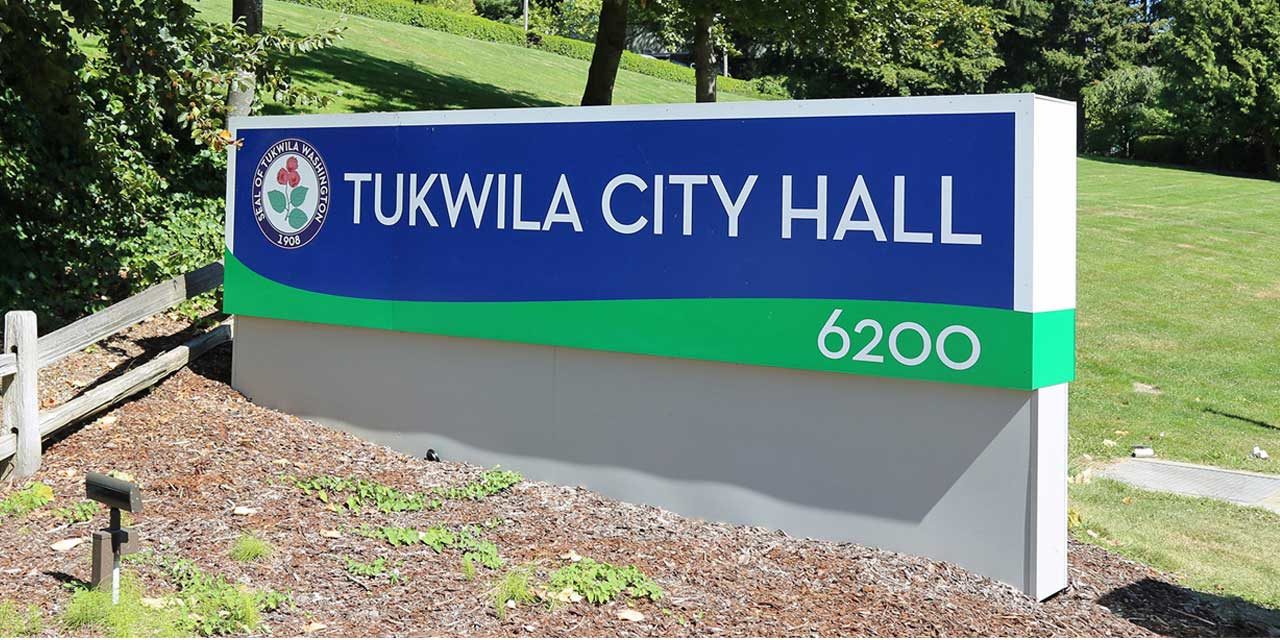By Lluvia Chavez
On Jan. 8, 2024, an overwhelming number of citizens signed up to speak to the Tukwila City Council about their pressing concerns, mainly about the homeless encampment at a local church.
Due to high numbers, speakers were limited to 2 minutes to talk after the newly-elected officials took their oaths of office.
Upon hearing the concerns of the citizens, it was evident that all these issues are interconnected and are affecting Tukwila’s predominantly low-income community and homeless individuals. Ruba Ayub, a community organizer and founder of Youth Voices for Justice, urged the council to fulfill its “fake equity” promises and denounced the gentrification occurring in the city.
Growing up in Tukwila, Ayub has seen the gentrification firsthand, sharing that she cannot afford to live there anymore.
“This city was built by immigrants, Muslim, Black, and Brown people,” Ayub said to the council.
In return, she said these communities have received little to no support. Instead, there have been numerous closures of minority-owned businesses over the past years and the council has prioritized the funding and construction of a new Tukwila Justice Center, back in 2016.
Citizens expressed concerns that the Tukwila City Council has spent years ignoring the problem and that they are displaying similar disregard for the asylum seekers at Riverton Park United Methodist Church. Some said this was made evident through the ordinance for homeless encampments that the council proposed on Dec. 11, 2023.
That ordinance contains strict regulations for the encampment including orders that would separate many children from their families, which was one of the biggest reasons voiced at the meeting.
Section 5 of the draft ordinance states that:
“No children under the age of 18 shall be allowed in the temporary homeless encampment. If a child under the age of 18 attempts to reside at the temporary homeless encampment, the managing agency or the host agency shall immediately contact Child Protective Services.”
Some citizens have made online comments on news sites to express that the media is not accurately portraying how invasive the encampment is to their neighborhood and the health risks that come along with it.
However, Latio Cosmos was another speaker who addressed the negative stigma surrounding homeless individuals and refugees. He gave his testimony and recalled arriving in Washington state as an asylum seeker himself. For Cosmos advocacy starts by “reminding them (politicians) that the positions that they occupy have repercussions, and they affect lives, and they affect generations”
He claimed that an essential part of this issue is recognizing that the U.S. and people in political power play a part in the displacement of the same immigrants who need refuge.
“At some point that money was not yours, those resources were not yours. They were taken by force,” Cosmos told the council.
According to speakers, the city council promised to formally meet with them the following day of the Jan. 8 city council meeting. However, reportedly no city councilmembers showed up to address their concerns.
As an outcome, some citizens called for the rejection of the ordinance and the proper allocation of money towards quality housing services for those in need.


